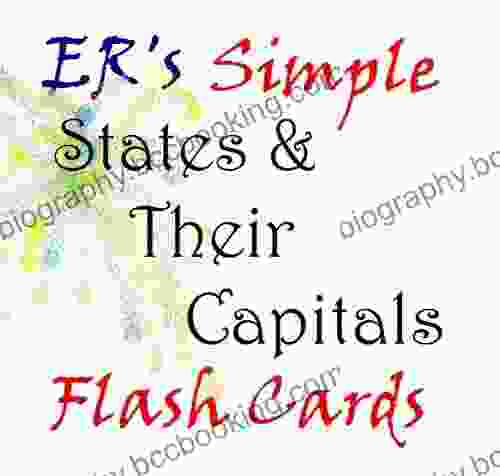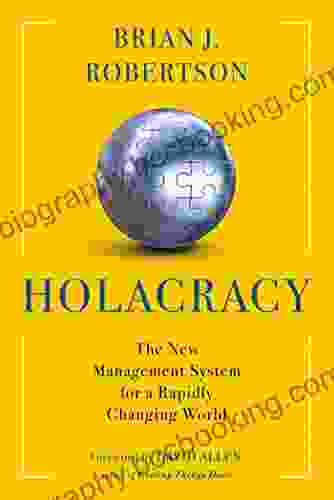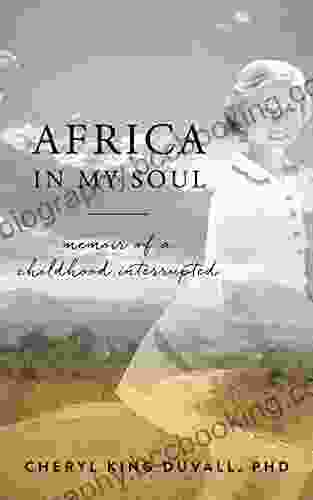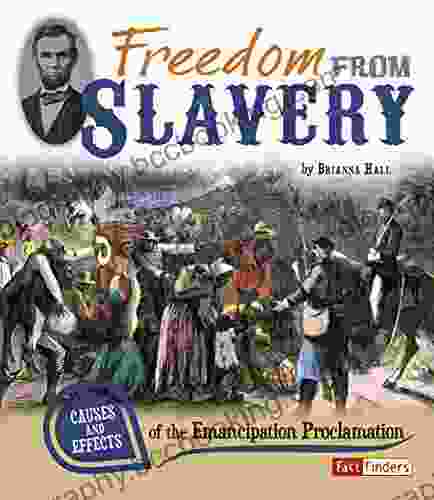Emancipation Proclamation: A Timeline of Cause and Effect

The Emancipation Proclamation was a landmark document in American history. It was issued by President Abraham Lincoln on January 1, 1863, and declared the freedom of all enslaved people in the United States. The proclamation was a major turning point in the Civil War, and it ultimately led to the abolition of slavery.
5 out of 5
| Language | : | English |
| Text-to-Speech | : | Enabled |
| Enhanced typesetting | : | Enabled |
| Word Wise | : | Enabled |
| File size | : | 21630 KB |
| Screen Reader | : | Supported |
| Print length | : | 32 pages |
In this article, we will explore the causes and effects of the Emancipation Proclamation. We will examine the events that led up to the proclamation, as well as its immediate and long-term consequences.
Causes of the Emancipation Proclamation
There were a number of factors that contributed to the issuance of the Emancipation Proclamation. These factors included:
- The growing pressure from abolitionists. Abolitionists were people who fought to end slavery. They believed that slavery was a moral evil, and they worked to persuade the government to abolish it.
- The military necessity. As the Civil War progressed, it became increasingly clear that the Union could not win without the help of African American soldiers. The Emancipation Proclamation was seen as a way to encourage African Americans to join the Union army.
- Lincoln's own moral convictions. Lincoln was a complex man, and his views on slavery evolved over time. By 1863, he had come to believe that slavery was a morally repugnant institution.
Effects of the Emancipation Proclamation
The Emancipation Proclamation had a profound impact on the United States. Its immediate effects included:
- The freeing of thousands of slaves. The Emancipation Proclamation declared the freedom of all enslaved people in the Confederate states. This meant that over 4 million slaves were freed overnight.
- The bolstering of the Union war effort. The Emancipation Proclamation encouraged African Americans to join the Union army. This helped to turn the tide of the war in favor of the Union.
- The deepening of the divide between the North and the South. The Emancipation Proclamation drove a wedge between the North and the South. The South saw the proclamation as an attack on its way of life, while the North saw it as a necessary step towards ending slavery.
In the long term, the Emancipation Proclamation had a number of important consequences. These consequences included:
- The abolition of slavery. The Emancipation Proclamation was a major step towards the abolition of slavery. Although it did not immediately end slavery in the United States, it helped to create the conditions that led to the abolition of slavery in 1865.
- The rise of African Americans. The Emancipation Proclamation gave African Americans a new sense of hope and possibility. It helped to pave the way for the civil rights movement and the eventual integration of African Americans into American society.
- The shaping of American history. The Emancipation Proclamation is one of the most important documents in American history. It has shaped the course of American history, and it continues to be a source of inspiration and hope for people around the world.
The Emancipation Proclamation was a landmark document in American history. It was a bold act that helped to end slavery and shape the course of American history. The proclamation is a reminder of the power of words and the importance of fighting for what is right.
5 out of 5
| Language | : | English |
| Text-to-Speech | : | Enabled |
| Enhanced typesetting | : | Enabled |
| Word Wise | : | Enabled |
| File size | : | 21630 KB |
| Screen Reader | : | Supported |
| Print length | : | 32 pages |
Do you want to contribute by writing guest posts on this blog?
Please contact us and send us a resume of previous articles that you have written.
 Book
Book Novel
Novel Page
Page Chapter
Chapter Text
Text Story
Story Genre
Genre Reader
Reader Library
Library Paperback
Paperback E-book
E-book Magazine
Magazine Newspaper
Newspaper Paragraph
Paragraph Sentence
Sentence Bookmark
Bookmark Shelf
Shelf Glossary
Glossary Bibliography
Bibliography Foreword
Foreword Preface
Preface Synopsis
Synopsis Annotation
Annotation Footnote
Footnote Manuscript
Manuscript Scroll
Scroll Codex
Codex Tome
Tome Bestseller
Bestseller Classics
Classics Library card
Library card Narrative
Narrative Biography
Biography Autobiography
Autobiography Memoir
Memoir Reference
Reference Encyclopedia
Encyclopedia Brian Osbourn
Brian Osbourn Bryce M Towsley
Bryce M Towsley Cameron Herold
Cameron Herold Catherine Coulter
Catherine Coulter Caroline Gallup
Caroline Gallup Casey Robson
Casey Robson Can Uslay
Can Uslay Brie Gyncild
Brie Gyncild Catherine Friend
Catherine Friend Bruce Scivally
Bruce Scivally Carole Lawrence
Carole Lawrence Brigid Kemmerer
Brigid Kemmerer Carolyn J Brown
Carolyn J Brown C A E Goodhart
C A E Goodhart Brian Kent
Brian Kent Carl Vernon
Carl Vernon Carlos Coronel
Carlos Coronel C C Alma
C C Alma Caitlin Zaloom
Caitlin Zaloom Catherine Carrigan
Catherine Carrigan
Light bulbAdvertise smarter! Our strategic ad space ensures maximum exposure. Reserve your spot today!

 David BaldacciMaster Geography with Ease: Explore "Er Simple States and Their Capitals...
David BaldacciMaster Geography with Ease: Explore "Er Simple States and Their Capitals...
 Jonathan HayesRevolutionizing Management: A New Paradigm for the Dynamic Global Landscape
Jonathan HayesRevolutionizing Management: A New Paradigm for the Dynamic Global Landscape Wesley ReedFollow ·12.9k
Wesley ReedFollow ·12.9k David PetersonFollow ·5.4k
David PetersonFollow ·5.4k Giovanni MitchellFollow ·3.5k
Giovanni MitchellFollow ·3.5k Samuel Taylor ColeridgeFollow ·15k
Samuel Taylor ColeridgeFollow ·15k Charlie ScottFollow ·12.6k
Charlie ScottFollow ·12.6k Donald WardFollow ·8.7k
Donald WardFollow ·8.7k Gil TurnerFollow ·5.5k
Gil TurnerFollow ·5.5k Chase SimmonsFollow ·8.5k
Chase SimmonsFollow ·8.5k

 Andy Hayes
Andy HayesUnveil the Rich Tapestry of Rural Life: Immerse Yourself...
Step into the enchanting pages of "Still...

 David Mitchell
David MitchellUnlocking the Depths of Cybersecurity: An In-Depth Look...
In the ever-evolving landscape of...

 Seth Hayes
Seth HayesUnlock the Secrets of Watercolor Landscapes: 37 Tools for...
Embark on a...

 Tyler Nelson
Tyler Nelson15 Insightful Answers to Questions on Uterine Fibroid
Uterine fibroids...

 Evan Hayes
Evan HayesAfrica In My Soul: A Literary Odyssey That Captivates the...
In a world where diverse cultures...
5 out of 5
| Language | : | English |
| Text-to-Speech | : | Enabled |
| Enhanced typesetting | : | Enabled |
| Word Wise | : | Enabled |
| File size | : | 21630 KB |
| Screen Reader | : | Supported |
| Print length | : | 32 pages |










